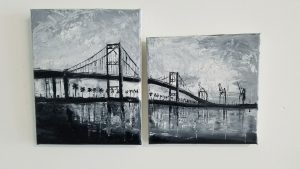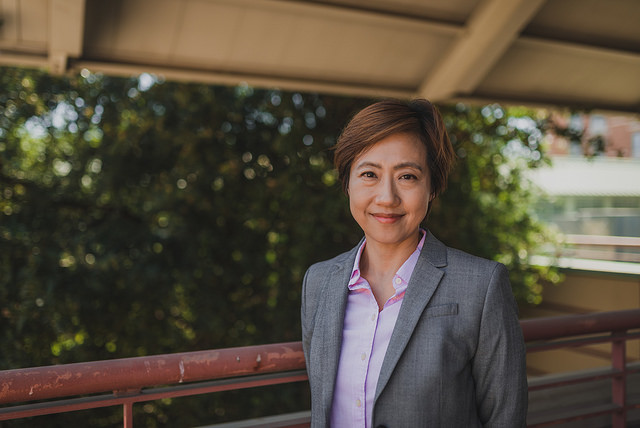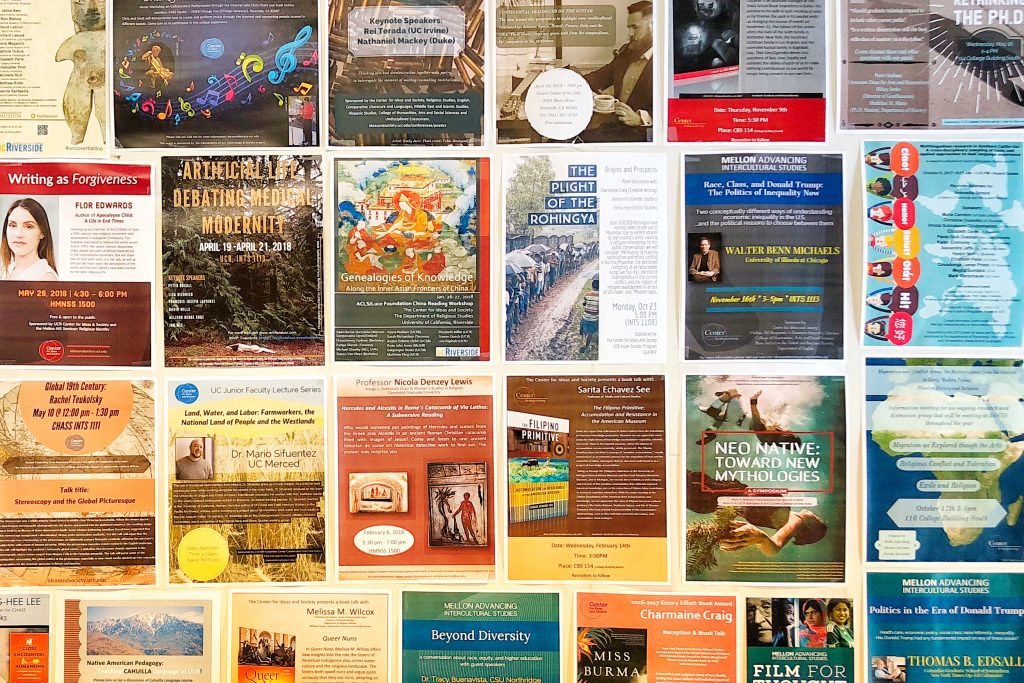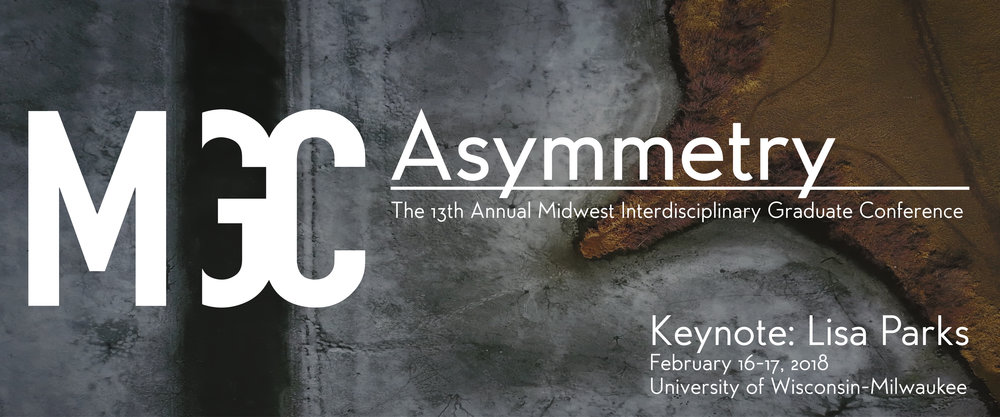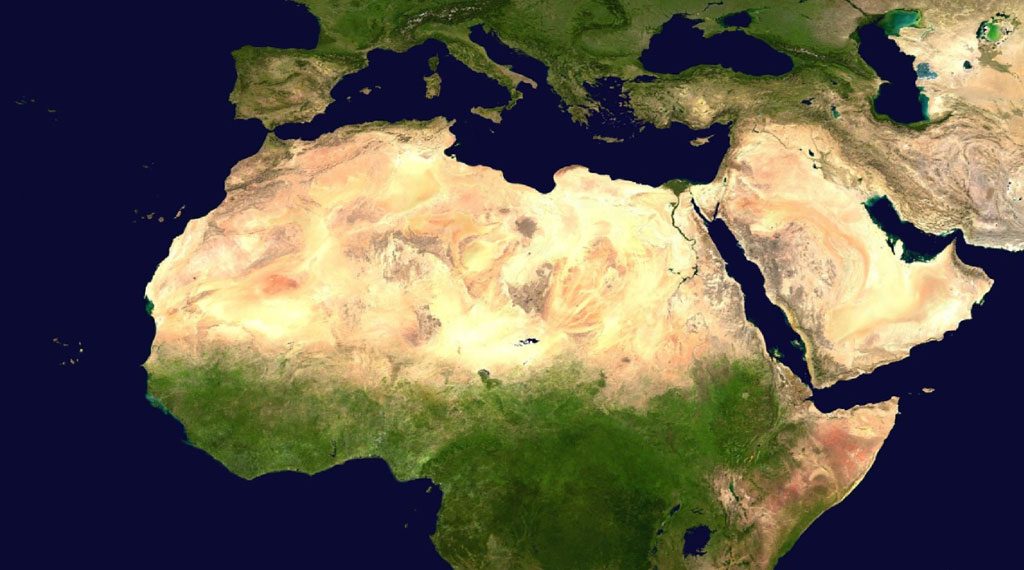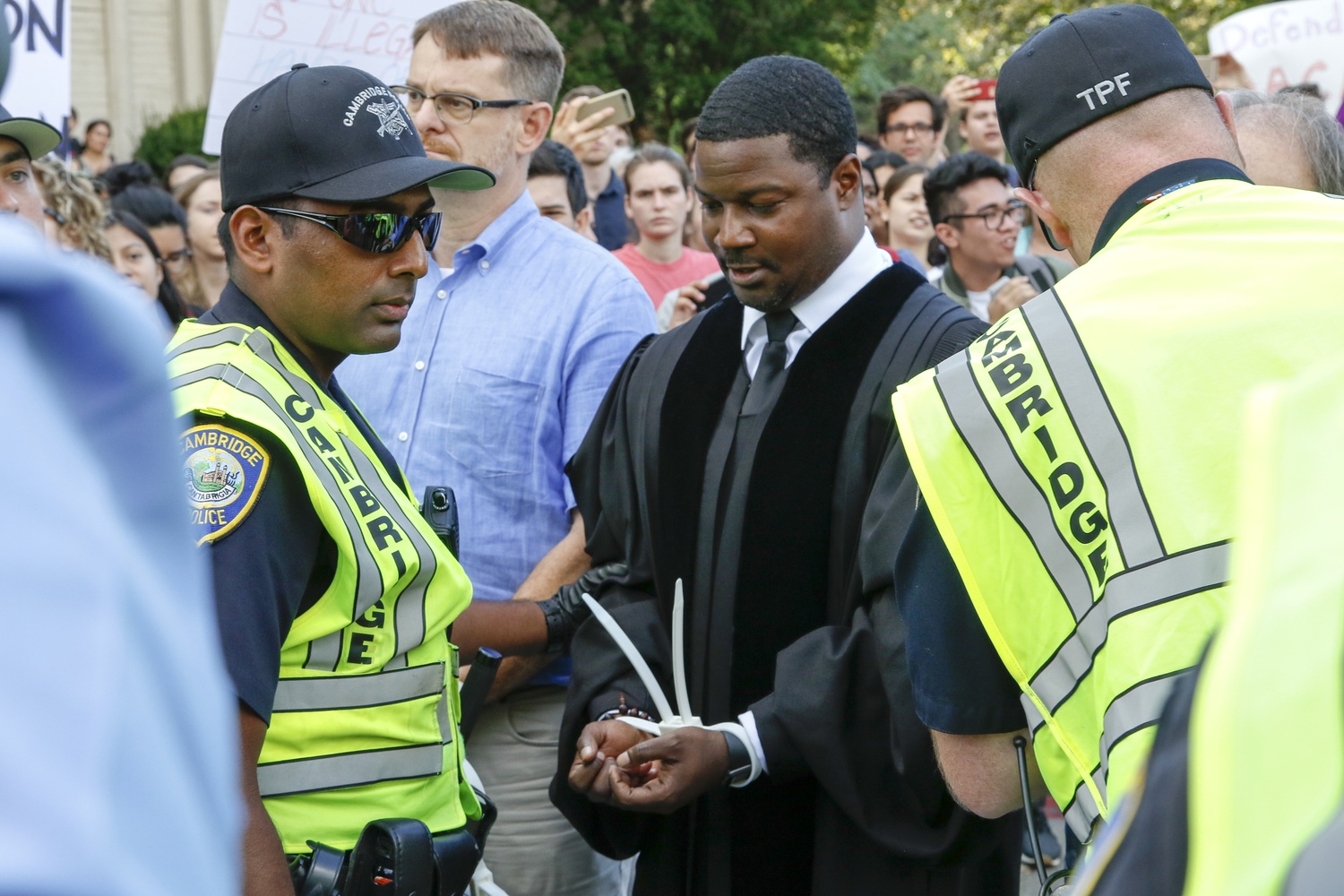Latest News
In Focus: Jade Sasser
Jade Sasser
African Studies Workgroup, Co-organizer, Humanities Interdisciplinary Project, 2018-19
 Jade’s Stats:
Jade’s Stats:
Department: Gender & Sexuality Studies
Rank: Assistant Professor
Years at UCR: 5 years
Favorite things: Swimming, coffeeshops, and karaoke
Non-academic class I would love to teach: “Motown Music for Beginners”
Top three most important texts: Feminist Political Ecology (Rocheleau, et al.); Gender and Climate Change (Nagel); and This Changes Everything (Klein). Not light reading, but texts I can’t do without.
Q. Summarize your research in one sentence…
Environmental issues are social issues, and they impact different groups differently!
Q. Is there a key intervention you are trying to make?
My work aims to focus attention on how small and large scale environmental problems are also everyday problems of the body, health, and social activism. Specifically for women.
Q: What are you working on now?
My current project analyzes women’s everyday cooking practices and their exposure to household air pollution in Africa and Asia. I spend a lot of time in kitchens, coughing over the charcoal or firewood stove that’s being used to cook, while the gas stove sits unused in the corner.
Q: What has teaching students taught you?
That there are endless ways to get an idea across and make it stick. Funny ways, serious ways, dramatic ways. But the way that works best is always to make it relevant to students’ actual lives.
Q: Do you have a go-to film or podcast you encourage students to access?
I always have my students watch a documentary called Hands On: Women, Climate, Change because it is about everyday actions women environmentalists are undertaking around the world. Climate change seems like a big scary monster that will crush us all—until we start to see that there are actions we can take, starting right now. The women in the film are all ages, including as young as UCR students. Hopefully it makes students feel a little more like they can make a difference.
Q: Anything else new or exciting we should know about?
I have recently published a book about my first project, titled On Infertile Ground: Population Control and Women’s Rights in the Era of Climate Change.
Learn more or get in touch! jadesasser.com
In Focus is a new interview series that features faculty associates of the Center for Ideas and Society.
In Focus: Donatella Galella
Performing Difference, Project Lead, Faculty Commons Project, 2018-19
Casting in Color, Project Lead, CIS Conference, 2019
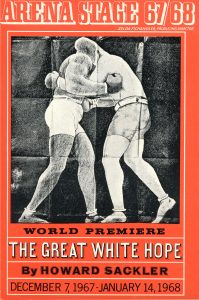
Original playbill for “The Great White Hope,” which Donatella analyzes in her book, “America in the Round.”
Q. How does your theatre background inform your methods or your approach to research?
Learn more about Donatella’s book: uipress.uiowa.edu/books/9781609386252/america-in-the-round
Or get in touch! ucriverside.academia.edu/DonatellaGalella
In Focus is a new interview series that features faculty associates of the Center for Ideas and Society.
In Focus: Robb Hernández
Robb Hernández
Arte Público, Project Lead, Humanities Interdisciplinary Project, 2018-19
Robb’s Stats:
Department: English
Rank: Assistant Professor
Years at UCR: 7 years
Favorite place: Boulder, CO (what can I say, I’m a proud hometown kid!)
Favorite film that I encourage students to see: Mona Lisa Smile (Columbia Tristar, 2003) I love the way that Katherine Watson (played by Julia Roberts) is able to use the modern art and radically transform students’ perception of themselves and the world around them in 1953 Wellesley College. Plus, the film gives an an ordinary Van Gogh paint by numbers the platform it deserves!
iPhone or Android: iPhone!
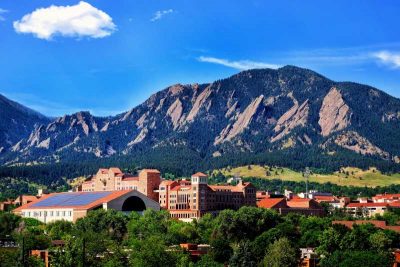
Robb’s hometown, Boulder, Colorado.
Q. Summarize your research in one sentence…
I elucidate how the aftermath of AIDS activated alternative archives, radical modes of queer preservation and custodianship for queer Latinx artists ravaged by disease and devastated by cultural neglect.
Q. Is there a key question or thread that runs through your work?
I am centrally interested in not only how AIDS generated another afterlife for Latinx art beyond institutional mediation but also, how Latinx art might be redefined when we confront the lost oeuvres and visual vocabularies of queer artists little known because of the consequential erasures caused by AIDS.
Q: What are you working on now?
My current project is retracing the speculative impulse in contemporary Latinx and Latin American art and thinking through how charged nativist discourses of “the alien” have engendered empowering iconographies, personas and otherworldly possibilities. By empowering the alien as a cosmic action, optic or perspective, Latinx artists circumvent the paralyzing reality of borders, walls, and militarized detention by looking skywards.
Q: Why is teaching important to you?
As a professor and curator in the Inland Empire, exhibition venues are rare and artist infrastructures are lagging. The classes I teach at UCR, a Hispanic Serving Institution, are often the first to engage Latinx students in the art museum as a site of research and social practice. Indeed, the disparities surrounding Latinxs entrance into the museum profession and even the field of art history, archive/information studies, and/or cultural heritage studies are staggering. Despite the burgeoning Latinx demographics in Southern California, the demand to rectify this egregious shortfall is critical. I continue to introduce students to the powerful role of museums and archives because curating Latinidad has never been more pressing.
Q: Any new or exciting developments?
My exhibition, Mundos Alternos: Art and Science Fiction in the Americas, will travel to the Queens Museum and Leslie Lohman Museum of Gay and Lesbian Art in New York City this spring (opening in April 2019). My co-curators and I are elated to bring UCR’s accomplishments in speculative studies, science fiction, and Latinx studies to new audiences on the east coast.
Q: What are three influential texts that you rely on?
Some texts that have historically stirred my ideas include Richard Meyer’s Outlaw Representation and in particular, his writing on Robert Mapplethorpe’s living room as a mode of furnishing desire. Jennifer Gonzalez’s Subject to Display on race, installation art, and material memory was a critical lynchpin in my thinking early on as a graduate student in American Studies. Lastly, Simon Doonan’s Confessions of a Window Dresser placed all things I love into center focus: queer memoir and extravagant tales of 80s fashion and shopping culture in LA, London, and NY. Doonan would share a small story about a young Chicano artist named Mundo Meza, which would have an unexplainable aftereffect on me changing the direction of my research and professional career in archiving and curation.
Learn more or get in touch with Robb: english.ucr.edu/people/faculty/robb-hernandez
In Focus is a new interview series that features faculty associates of the Center for Ideas and Society.
She’s truly the colleague we all hope for

Dana Simmons has devoted her life to teaching. She is an associate professor in the department of history and has been teaching at UC Riverside for 13 years.
“With very little, if any, compensation, Dana has been tireless in her efforts to advance the careers of women faculty,” said Goldberry Long, UCR professor of creative writing. “She’s truly the colleague we all hope for, one who wants all colleagues to be successful. She works on their behalf without any apparent desire for recognition or praise. Words fail me; she’s just wonderful.”
Simmons is a co-convener of the CHASS Women’s Mid-Career Research Initiative (CMCRI). The initiative’s goal is to provide a support network for female faculty and faculty of color, to collaboratively and collectively move towards career advancement at the mid-career level. The initiative offers writing retreats, workshops, panels, and assistance in goal settings for the faculty in research and writing.
The CMCRI was formed by UCR CHASS professors Erica Edwards, Jennifer Hughes and Michelle Raheja in 2011 with support from the UCR Center for Ideas and Society (CIS). CIS has also played a huge part in providing support, funding and providing a place where faculty can continuously learn from each other, and for them to demonstrate their love for their work.
“The reward is being able to share the daily triumphs and challenges of my colleagues and to know that the folks out there are watching out for each other,” Simmons said. “I see them as models for my work.”
Simmons was recently nominated by 30 women faculty for the Rachel Fuchs Memorial Award for excellence in mentorship and service to women and the LGBTQ community.
Simmons will be taking a sabbatical leave during spring quarter to complete her book, focusing on the history of the science and politics of hunger and food insecurity.
In Focus: Christina Soto van der Plas
Christina Soto van der Plas
Second Project Fellow in Residence, Winter 2019
Christina’s Stats:
Department: Hispanic Studies
Rank: Assistant Professor
Years at UCR: 2 years
Favorite thing: Sitting on a bench, painting the beautiful and chaotic scenery of the Port of Los Angeles at San Pedro.
Top three texts to take to a desert island:
❖ The three volumes of Ricardo Piglia’s diaries which he published under the name of his alter-ego, Los diarios de Emilio Renzi.
❖ The Odyssey, of course, because I would be stranded in an island.
❖ The psychoanalyst Jacques Lacan’s Seminar 20: Encore, a beautiful reflection on love and sex.
Q. Summarize your research in one sentence…
I draw ideas from intuitions and fascinating patterns in literary or theoretical works and then fashion daring and seemingly weird hypothesis on a corpus of my choosing to rethink how our imaginaries and language structure our experience.
Q. How do you feel that your work differs from other scholars?
My research is unique because of its ability to create terms and definitions drawn from literature to rethink and shift the paradigms of my discipline (Latin American Literature), cutting across boundaries and crossing divisions. The underlying assumption of my research within contemporary Mexican and Latin American studies is that literature can not only be thought, but it is also a form of thought, thus bridging and traversing many of the impasses and divisions that have dominated much of literary criticism.
Q: What are you working on this quarter?
My new project Is about what I call the “New Chronicles of the Indies”. The project seeks to question the ideas of the three terms I chose as a title: “new,” “chronicles,” and “Indies”. It explores how the traditional chronicles of the discovery and conquering of the Americas have been rewritten or reformulated with different purposes and in different literary forms. I find logics and literary procedures more than themes or relationships with a historical setting. One of the overarching hypotheses of the project is that the chronicle is the literary genre that founded modernity in its speculative projections and exchanges of geography and economy.
Q: Anything else new and exciting in your world?
*I just came back from a trip to Mexico City where I was a keynote speaker for the first time! The talk was at my alma mater the Universidad Iberoamericana, where I studied my licenciatura (BA). Going back home, after seven years, and achieving all that I have was an amazing moment for me. One of the last essays I wrote, about the Mexican poet José Emilio Pacheco, can be found in the book Mexican Literature in Theory (Bloomsbury, 2018). I am also writing a chronicle about San Andrea’s Fault and the Salton Sea.
Q: How do you share your research with students and in your courses?
Two crucial verbs have always expressed what I am most passionate about: reading and writing. But now that I am a professor, I have permanently added a third verb to the list: teaching. And it is the perfect complement of the other verbs because the solitary acts of reading and writing are now supplemented with the opportunity to share and instill what I love about them. In my classroom you will often find a blackboard full of words, diagrams, arrows, and drawings of my students’ ideas that, together, we manage to connect by drawing constellations or categories for better understanding a text. I encourage students to think outside the box and pursue “strange” ideas that touch upon our lives.
Learn more or get in touch with Christina: ucriverside.academia.edu/ChristinaSotovanderPlas
❖
In Focus is a new interview series that features faculty associates of the Center for Ideas and Society.
Happy Holidays

Warm wishes from everyone at the Center for Ideas & Society! This coming year in 2019, the Center will be celebrating its 30th Anniversary. As we move forward into the new year, we will look back at the Center’s history and impact over the last 30 years. Stay tuned!
2018 Emory Elliott Award Winner
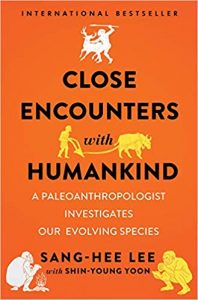
About the Book
What can fossilized teeth tell us about the life expectancy of our ancient ancestors? How did farming play a problematic role in the history of human evolution? How can simple geometric comparisons of skull and pelvic fossils suggest a possible origin to our social nature? And what do we truly have in common with the Neanderthals? In this captivating international bestseller, Close Encounters with Humankind, Korea’s first paleoanthropologist, Sang-Hee Lee, explores some of our greatest evolutionary questions from new and unexpected angles. This book is the perfect read for anyone curious about where we came from and what it took to get us here. As we mine the evolutionary path to the present, Lee helps us to determine where we are heading and tackles one of our most pressing scientific questions―does humanity continue to evolve?
The book was awarded the W.W. Howells Book Award by the Biological Anthropology Section of the American Anthropological Association. The award is given to honor a book that represents “the highest standard of scholarship and readability,” and informs “a wider audience of the significance of physical or biological anthropology in the social and biological sciences, and demonstrate a biocultural perspective.” It is now in five languages (Korean, English, Spanish, Traditional Chinese, and Japanese). Next year (2019) the Greek, Mandarin Chinese, Portuguese, and Russian editions will be out.
Climate change is worsening, but population control isn’t the answer
UCR News Article on upcoming Hot off the Presses speaker, Jade S. Sasser and her new book: “On Infertile Ground: Population Control and Women’s Rights in the Era of Climate Change.”

Jade S. Sasser’s new book highlights contemporary population control’s consequences for poor women in the Global South.
Over the past 100 years, the popularity of population control in the United States has ebbed and flowed. Once considered a responsible way to safeguard the planet and ensure its future viability, population control was later revealed as a coercive tool used to limit the reproductive freedom of low-income and minority groups.
Jade S. Sasser, an assistant professor of gender and sexuality studies at the University of California, Riverside, has spent nearly a decade studying the history of population politics and how they’re interpreted today. According to her, population control is far from a thing of the past; instead, some of its core messages have been repackaged to appeal to a younger generation of American activists.
The resulting narrative links population trends to environmentalism and sexual agency, positioning “empowered” women as key crusaders in the fight against climate change. If women are encouraged and given the materials to control and limit their reproduction, or so the thinking goes, both they and the planet will reap the benefits.
But there’s a problem, Sasser said. Certain women remain disproportionately targeted by such a narrative, the bulk of them poor women living in the Global South, or countries in Africa, Latin America, and developing Asia.
Sasser’s firsthand experiences with young women in the Global South — and their American activist counterparts — form the backbone of her new book, “On Infertile Ground: Population Control and Women’s Rights in the Era of Climate Change” (NYU Press). Described by its author as a “cautionary tale,” the book takes a critical look at the positioning of population growth as a source of climate crisis.
UCR professor’s American Book Award could boost other Inland authors

Author and UC Riverside Professor Rachelle Cruz gives a speech as she accepts an American Book Award on Sunday, Oct. 28. (Photo courtesy of Cati Porter, Inlandia Institute)
UC Riverside Professor Rachelle Cruz accepted an American Book Award on Sunday, Oct. 28, an honor that the Inland literary community says is a milestone not just for her but also for the region.
Cruz’s poetry collection, “God’s Will for Monsters,” was among 15 winners that the Before Columbus Foundation chose to recognize for “outstanding literary achievement from the entire spectrum of America’s diverse literary community.”
The book centers around a shape-shifting figure from Filipino folklore called an aswang, which Cruz uses to explore intimate topics like secrets, shame and what it means to be a “witch.”
The child of Filipino parents, she strove for a nuanced look at the traditional culture and how Catholic teachings had changed and marginalized it.
Similarly, she hopes her work will reverse misconceptions about the Inland region, which she said has long had excellent writers but isn’t recognized for its talent.
Lee Explores Human Evolution in “Close Encounters With Humankind”
“Close Encounters with Humankind” is not your typical textbook. Every chapter starts with a question. Questions can be about the birth of fatherhood, or farming, or our changing brains.
“A lot of the textbooks talk about the beginning that happened billions of years ago,” Lee said, “but this book starts with a question each chapter. Each chapter is an exploration.” The questions challenge the traditional progression of evolution and provide intriguing insights into the human origins through Lee’s research. Her conclusions and discoveries will keep readers absorbed and ultimately question whether humanity will continue to evolve.
Lee wants her readers to perceive that we are always evolving and changing. “I want my readers to recognize that our today is made up of an infinite number of todays from the past. If readers can be familiar with the legacy of the depth of time, we hold in ourselves and to be even more curious. That is what I would hope for.”
Lee’s book is the recipient of the 2019 W.W. Howells Book Award and has been published in Korean, English, Spanish, and Chinese. The book is also scheduled to be published in four more languages next year. In the future, Lee would also like to explore more about women in human evolution.
The Center Receives $1 Million Grant
In a bold acknowledgment of the University of California, Riverside’s humanities programs, The Andrew W. Mellon Foundation has awarded $1 million to the university’s Center for Ideas and Society.
The award, which comes on the eve of the Center for Ideas and Society’s 30th anniversary in 2019, is the largest the center has ever received. It will support a series of fellowships for faculty members pursuing humanities and humanities-related scholarship, said UCR’s Georgia Warnke, center director and distinguished professor of political science.
“This award reflects confidence in UCR’s humanities faculty broadly understood and a welcome desire to sustain interdisciplinary and humanistically oriented scholarship,” Warnke added. “It’s truly transformative for the university.”
The grant reinforces UCR’s commitment to further enhancing its profile in the humanities and related fields at a time when funding and programming for such fields are under threat at public universities across the country.
Catherine Gudis Awarded Engaging Humanities Grant
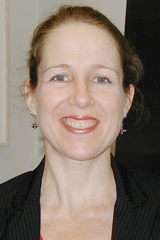 Congratulations to Catherine Gudis (History), recipient of a UCHRI Engaging Humanities Grant for her project: Skid Row History Museum and Archives.
Congratulations to Catherine Gudis (History), recipient of a UCHRI Engaging Humanities Grant for her project: Skid Row History Museum and Archives.
Catherine Gudis is Director of the Public History Program at UCR and teaches classes in public history and 20th century U.S. history, building on her twin interests in modern consumer culture and cultural and urban constructions of race, space, and place. She received her B.A. in Philosophy from Smith College and Ph.D. in American Studies (with distinction) from Yale University, where she also won the Yale Teaching Prize. Professor Gudis is the author of Buyways: Billboards, Automobiles, and the American Cultural Landscape (Routledge, 2004), which traces the relationship between automobility, advertising, and the commercialization of the urban environment. She has contributed to and edited Cultures of Commerce: Representations of Business Culture in the United States (coedited with Elspeth Brown and Marina Moskowitz, Palgrave/MacMillan, 2006) and museum books on art and culture, including Lions and Eagles and Bulls: Early American Inn & Tavern Signs (Princeton, 2001), Ray Johnson: Correspondences (coedited with Donna DeSalvo, Flammarion, 2000), Helter Skelter: L.A. Art in the 1990s (Los Angeles: Museum of Contemporary Art, 1990), Oehlen Williams (Wexner Center, Ohio State, 1999), and A Forest of Signs: Art in the Age of Representation (MIT, 1989).
UCR archaeologist’s exhibition exposes an overlooked ancient Mesoamerican society
Catharina Santasilia (UC Riverside, Ph.D. Candidate, Anthropology) has been featured in Medium’s latest issue. Santasilia was a participant in the Rise of Civilization in Mesoamerica Conference back in February 2018.
Forget the hat and whip made famous by Indiana Jones. For a preteen Catharina E. Santasilia, her love of archaeology started with Daniel Day-Lewis.
It was the actor’s star-making performance in “The Last of the Mohicans” that inspired the Denmark-born Santasilia’s lifelong interest in indigenous peoples and the things they left behind.
“I’ve always been curious,” said 34-year-old Santasilia, who goes by “Cat,” and is an international doctoral student in UC Riverside’s Department of Anthropology. “But two things happened after I watched ‘The Last of the Mohicans.’ I, like many girls, fell in love with Daniel Day-Lewis, and I developed a fascination with the Americas, which is one of the reasons why I wanted so badly to come to the United States.”
Her fascination — cultivated over six summers in Belize studying ancient Maya sites — came to a head in 2015, in downtown Riverside, of all places. Tucked inside a storage room at the Riverside Metropolitan Museum, Santasilia made a discovery that would alter the course of her nascent archaeology career: a collection of nondescript boxes, bequeathed to the museum in 2003 by the descendants of a local archaeologist, which contained never-before-displayed remnants of a 3,000-year-old Mesoamerican society.
Thank you for a great year!
As the academic year draws to a close, we want to THANK YOU for your participation and support!
We’re celebrating another successful year of humanities-oriented programs at UCR. Over the last 12 months, the Center sponsored…
- 5 conferences & workshops reaching over 360 people
- 8 community events with over 450 participants
- 9 faculty-led projects hosting 27 guest speakers
- 8 faculty book talks including Emory Elliott Award winner: “Miss Burma” by Charmaine Craig
- 24 graduate dissertation research grants
- PLUS co-sponsorship of events across campus on topics such as nuclear disasters, media expertise, the Rohingya crisis, Native American pedagogy, careers for Ph.D. students, healing the Earth and much more!
We have more great programming on the way—
Film for Thought, a free summer documentary series!!
UCHRI Awards Grants to UC Riverside Faculty & Students
Congratulations to Jody Benjamin (History), recipient of a UCHRI Junior Faculty Manuscript Workshop award for his project: The Texture of Change: Cloth, Commerce and History in Western Africa, 1700–1850.
Additional kudos for two UCR graduate students who have received Graduate Student Dissertation Support Grants from UCHRI:
Mackenzie Gregg: Plagues that Fascinate: Literary Leprosy and Queer Affect in the Victorian Fin de Siècle
Hannah Manshel: The Freedom of a Broken Law
Stephen Sohn Receives NEH Summer Stipend
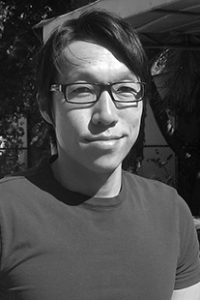 Congratulations to CIS Senior Fellow Stephen Sohn (English), recipient of a 2018 NEH Summer Stipend for his project: The Korean War (1950-53) in Poetry by Korean Americans. NEH Summer Stipends support individuals pursuing advanced research that is of value to humanities scholars, general audiences, or both. The fellowship sponsors continuous full-time work on a humanities project for a period of two consecutive months.
Congratulations to CIS Senior Fellow Stephen Sohn (English), recipient of a 2018 NEH Summer Stipend for his project: The Korean War (1950-53) in Poetry by Korean Americans. NEH Summer Stipends support individuals pursuing advanced research that is of value to humanities scholars, general audiences, or both. The fellowship sponsors continuous full-time work on a humanities project for a period of two consecutive months.
Stephen Sohn, a former University of California President’s Postdoctoral fellow (2006-2007), has edited or co-edited a number of different works and special issues, including Transnational Asian American Literature: Sites and Transits (Temple University Press, 2006); Studies in the Literary Imagination (SLI, Vol. 37.1, Spring 2004) on Asian American Literature; MELUS (Winter 2008) on the topic of “Alien/Asian”; and Modern Fiction Studies on the topic of “Theorizing Asian American Fiction” (2010). Read More
Loubna Qutami Awarded UC Presidential Postdoctoral Fellowship at UC Berkeley
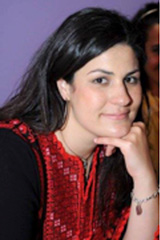 Loubna Qutami (Ethnic Studies) has been awarded a UC Presidential Postdoctoral Fellowship at UC Berkeley. Congratulations! Loubna, a recent recipient of a CIS Humanities Graduate Student Research award, will complete her dissertation and graduate in June. She has completed a Masters of Arts degree in the College of Ethnic Studies: Arab and Muslim Ethnicities and Diasporas Initiative at San Francisco State University. Her Master’s Thesis Transnational Belonging: Palestinian Youth Searching for Home interrogates the imagined and real boundaries impacting transnational Palestinian youth movements and belonging to homeland. Her MA thesis challenges the bonds of text on nationalism, Diaspora, displacement, erasure, refugee-hood, exile and placelessness by situating the topics in a critical race and resistance lens and using activist ethnographic methods. Read More
Loubna Qutami (Ethnic Studies) has been awarded a UC Presidential Postdoctoral Fellowship at UC Berkeley. Congratulations! Loubna, a recent recipient of a CIS Humanities Graduate Student Research award, will complete her dissertation and graduate in June. She has completed a Masters of Arts degree in the College of Ethnic Studies: Arab and Muslim Ethnicities and Diasporas Initiative at San Francisco State University. Her Master’s Thesis Transnational Belonging: Palestinian Youth Searching for Home interrogates the imagined and real boundaries impacting transnational Palestinian youth movements and belonging to homeland. Her MA thesis challenges the bonds of text on nationalism, Diaspora, displacement, erasure, refugee-hood, exile and placelessness by situating the topics in a critical race and resistance lens and using activist ethnographic methods. Read More
“Understanding what it means to be human — and why it matters”
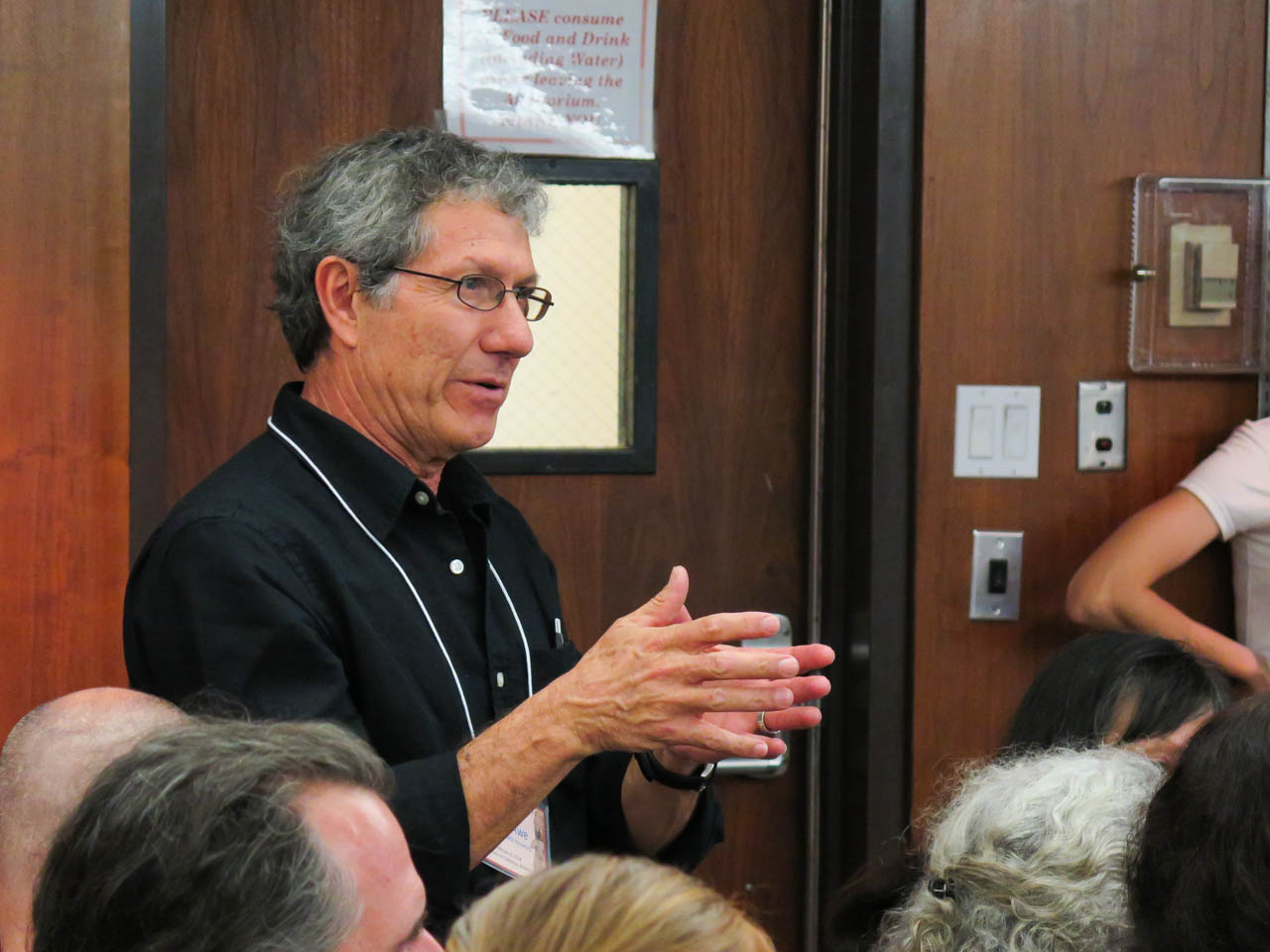
If you’ve ever wondered what it means to be human, what our purpose is in the world, and why things happen the way they do, you’re not alone. That’s the mission of the Center for Ideas and Society at the University of California, Riverside — to encourage and nurture humanities-related inquiry and discussion.
“The academic disciplines referred to as ‘the humanities’ are often seen as either indulgences or extras in a university setting, which is more likely to be associated with research and innovation in science and technology,” said Georgia Warnke, director of the Center. “Yet the humanities remind us of the point of these endeavors.
“Why try to cure disease unless we think healthy human life has meaning, and where should we seriously explore what that meaning is except in such fields as philosophy, literature and studies of the creative arts?”
Source: “Understanding what it means to be human — and why it matters”
UCR’s Culver Center to Host Sweeping ‘Neo Native’ Contemporary Arts Symposium
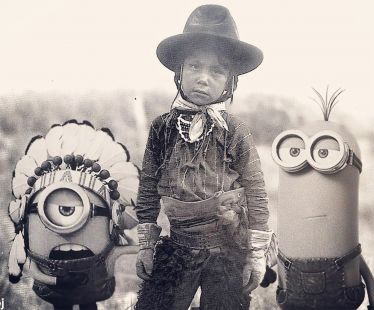 An unprecedented four-day symposium hosted by the University of California, Riverside will spotlight Native American artists whose work explores aspects of the contemporary Native American experience.
An unprecedented four-day symposium hosted by the University of California, Riverside will spotlight Native American artists whose work explores aspects of the contemporary Native American experience.
Held Nov. 1-4, “Neo Native: Toward New Mythologies” further brings to life the Sam and Alfreda Maloof Foundation for Arts and Crafts’ 40-work exhibition of the same name, which opened in June at the Alta Loma-based gallery.
The exhibition, curated by Navajo painter Tony Abeyta, includes pieces from 11 contemporary artists with Native American tribal affiliations, including ceramicists, painters, photographers, printmakers, and sculptors.
Source: UCR’s Culver Center to Host Sweeping ‘Neo Native’ Contemporary Arts Symposium
The 2018 MIGC Call for Papers
The Midwest Interdisciplinary Graduate Conference (MIGC) is an annual event held at the University of Wisconsin – Milwaukee that supports the sharing and collaboration of national and international graduate student research across disciplines.
Urban development. Access to information technologies. Voting districts. Drone warfare. The asymmetrical identifies a lack of equivalence that is increasingly characteristic of contemporary economic, material, political, and visual relations. Asymmetry is often at the surface of history: where sustained and repeated practices of inequality manifest as image. The asymmetrical is also an aesthetic that registers imbalance and refuses a call to order. The 2018 Midwest Interdisciplinary Graduate Conference (MIGC) asks how asymmetry and the asymmetrical can be used to interpret sites of conflict and complicate traditional ideas of equivalence, balance, and organization.
Emerging scholars in the humanities, arts, and humanistic sciences are invited to present work that broadens our current understanding of asymmetry and how it engages with culture, theory, and society. What are critical examples of asymmetrical development? How does the asymmetrical work in literature, the visual arts, and performance? What theoretical frameworks inform our understandings of the asymmetrical? How does asymmetry draw attention to patterns of inequality? When should we strive for asymmetry?
Deadline to apply is December 1, 2017
Research group explores social issues in the Mediterranean through the arts
On Tuesday, Oct. 17, UCR’s Center for Ideas and Society-sponsored research group Migration and Conflict Across the Mediterranean kickstarted their year-long project of examining Mediterranean topics on religious conflict and toleration and migration through the arts and exile.
Organized by three UC Riverside professors — Professor of Literature & Performance and Chairman of Theatre, Film, and Digital Production Erith Jaffe-Berg; Professor of History Michele Salzman and Associate Professor of History Fariba Zarinebaf — the group met at the Center of Ideas and Society, where other professors, graduate students and undergraduate students discussed how the Mediterranean, a region known for its cultural contact and exchange, has handled issues specifically on religious conflict and negotiation.
The three professors organizing this research group have extensive works related to the Mediterranean region. Jaffe-Berg has examined the development of commedia dell’arte, an early Italian form of professional theatrical performance, and has researched how underrepresented cultural and religious groups of this same time period made theatre in Europe. Salzman researches how communities negotiate for social status and power though performance, and is currently writing a book on the third to seventh century crisis faced in the city of Rome titled, “The ‘Falls’ of Rome: The Transformations of Rome in Late Antiquity.” Lastly, Zarinebaf studies how the Mediterranean world is connected to the history of Istanbul and how the legal system of societies and empires developed to accommodate the diverse community in the pre-modern period.
UCR Celebrates Launch of Bilingualism Matters
The ability to speak two languages is considered a coveted social and professional advantage in an increasingly globalized society. Less frequently discussed, however, are the cognitive benefits that bilingualism offers to speakers.
According to the University of California, Riverside’s Judith Kroll, distinguished professor of psychology and director of UCR’s Bilingualism, Mind, and Brain Lab, bilingualism’s consequences are evident over the entire life span. People who can speak more than one language develop “mental flexibility” that increases openness to new learning, while code-switching, the practice of alternating between multiple languages in a single conversation, becomes an act of cognitive athleticism.
“Some of the most dramatic consequences are seen in older adults,” Kroll said. “Studies show that while bilingualism doesn’t protect people against dementia or Alzheimer’s disease, it does seem to protect them against the onset of the symptoms. On average, the age at which bilingual people present symptoms of dementia or Alzheimer’s disease is roughly four to five years later than monolinguals.”
Jonathan Walton Arrested at DACA Protest
Mellon Advancing Intercultural Studies speaker and former UC Riverside Professor, Jonathan Walton, was one of the thirty-one professors arrested on Thursday at the DACA protest in Harvard Square.
Reverend Jonathan L. Walton was arrested at a protest against the repeal of the Deferred Action for Childhood Arrivals program on Thursday afternoon. Photo: Timothy R. O’Meara
Before the arrests, several professors, one undocumented student, Massachusetts State Representative Marjorie C. Decker, and Memorial Church Minister Jonathan L. Walton spoke of the need to take action against the policy outside Massachusetts Hall to a crowd of roughly 300 students, faculty, and affiliates from five different universities. Khurana was also at the protest. Walton, who was later arrested, denounced the Trump administration in his remarks.“We are here to say to the U.S. President, to his Attorney General, and to all the insecure leaders of this nation, that no human being is illegal,” Walton said.
Source: Professors Arrested at DACA Protest | News | The Harvard Crimson
Daisy Vargas, History Ph.D. Candidate, Wins Prestigious Fellowship
Center for Ideas & Society affiliate, Daisy Vargas, is one of the six Ph.D. candidates in the Department of History who have won prestigious fellowships and grants totaling more than $200,000 this year. Daisy has worked on several projects at the Center including Religions in Diaspora and Global Affairs (RIDAGA) and Articul@s Autonm@s.
Daisy Vargas has been awarded $25,000 as one of 21 Charlotte W. Newcombe Doctoral Dissertation Fellows for 2017 at the Woodrow Wilson National Fellowship Foundation. The Newcombe Fellowship is the nation’s largest and most prestigious award for Ph.D. candidates in the humanities and social sciences addressing questions of ethical and religious values.
The grant will support completion of her dissertation, “Mexican Religion on Trial: Race, Religion and the Law in the U.S.-Mexico Borderlands.” The dissertation traces the history of Mexican religion, race and the law from the 19th century into contemporary times, positioning current legal debates about Mexican religion within a larger history of anti-Mexican and anti-Catholic attitudes in the United States.
Her research has taken her from immigrant religious festivals in California and Utah to archives in Mexico, New Mexico, and Texas. She also is conducting ongoing research on botanicas in Southern California and curanderismo (traditional Mexican healing and practices) in the 20th century. The latter has taken her to archives in Chicago and oral histories in South Texas.
Vargas recently was chosen to participate in the Young Scholars’ Symposium at the Institute for Latino Studies at Notre Dame, where she was chosen from a nationally competitive pool of late-stage doctoral students and junior faculty to present a chapter of her dissertation.
“Ms. Vargas is one of the top young scholars in the academic study of Latino religions in the United States, an important emerging field within the discipline of religious studies,” said Jennifer Scheper Hughes, associate professor of history and Vargas’ dissertation advisor. “Her dissertation examines the ways in which the law has engaged, framed, contested, and constrained Latino religions since the Treaty of Guadalupe Hidalgo through the present. Her work is profoundly interdisciplinary, both archival and ethnographic.”
Source: History Ph.D. Candidates Win Prestigious Fellowships
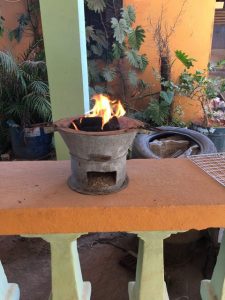
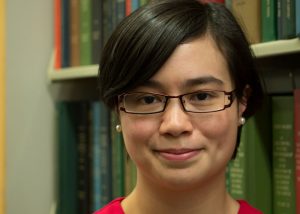 Donatella’s Stats:
Donatella’s Stats: